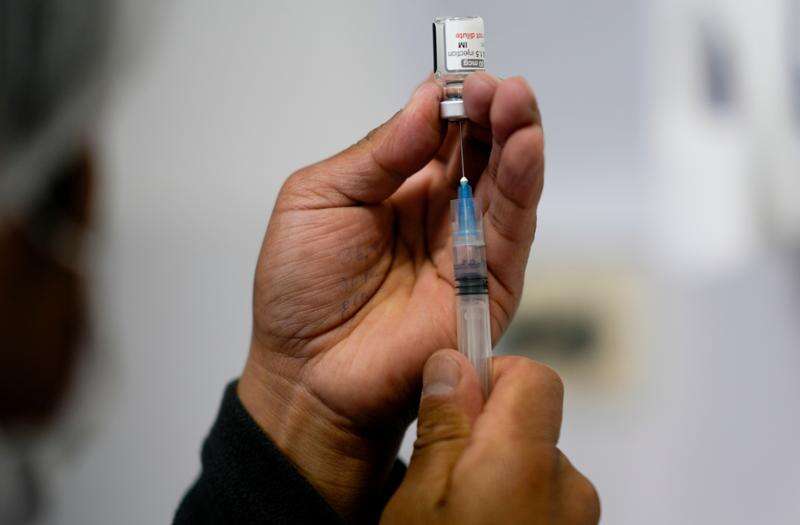The U.S. Food and Drug Administration (FDA) has announced the removal of black box warnings from hormone replacement therapies (HRT) used for menopause treatment. This decision, made public by the U.S. Department of Health and Human Services on March 15, 2024, marks a significant shift from a warning system implemented in the early 2000s that linked these therapies to increased risks of breast cancer, heart disease, and stroke for some women.
A black box warning is the FDA’s most serious alert regarding medication safety, applied to entire classes of treatments based on their effects within the body. FDA Commissioner Marty Makary criticized the previous use of these warnings for HRT as “unscientific.” The FDA’s latest decision may enhance access to hormonal therapies for individuals experiencing menopausal symptoms, which commonly include hot flashes and night sweats.
Research conducted after the 2003 warning indicated that the risks associated with HRT had been overstated, potentially discouraging both women from seeking treatment and healthcare providers from prescribing it. According to Nanette Santoro, an ob-gyn at the University of Colorado Anschutz and a lead researcher with the Women’s Health Initiative, “Overall, it’s a good thing.” This initiative has been pivotal in studying heart disease, cancer, and osteoporosis among postmenopausal women since its inception in 1991, primarily funded by the National Institutes of Health.
Despite the FDA’s announcement, some experts caution that it may unintentionally exaggerate the perceived benefits of hormone therapies. Jim O’Neill, Deputy Secretary of HHS, noted that more women could mitigate risks of fractures and heart disease, as well as cognitive decline, by using these therapies. However, Santoro maintains that evidence supporting such benefits is not as robust as suggested.
There is ongoing scrutiny of HRT, particularly as Makary and HHS chief Robert F. Kennedy, Jr. reassess past FDA decisions, including those regarding vaccines. A panel of experts convened in July to evaluate the scientific evidence regarding the risks and benefits of HRT for menopause. It is important to note that not all hormone replacement therapies are affected by this announcement. Certain estrogen-only treatments will still carry warnings regarding the risk of endometrial cancer.
Menopause is characterized by a reduction in estrogen, a hormone vital to sexual and reproductive health, and is clinically defined by the absence of menstruation for 12 months. Hormone therapy aims to alleviate various menopausal symptoms by providing synthetic hormones, typically through oral pills, patches, gels, or vaginal rings.
Historically, hormone therapy gained popularity in the 1990s as studies suggested it could reduce osteoporosis risk. However, subsequent research in the early 2000s revealed a heightened risk for breast cancer, heart disease, and stroke in some users, prompting the FDA to implement black box warnings. Following this, the number of women opting for these therapies declined sharply.
Critics, including Makary and Kennedy, have challenged findings from the Women’s Health Initiative, arguing that the risks were primarily observed in older women using outdated drug formulations. Follow-up studies have shown negligible risks or benefits associated with these older therapies. Santoro explained that current evidence does not indicate significant health risks or advantages with the older formulations.
The method of hormone delivery also appears to influence the associated risks. For instance, vaginal formulations generally present lower risks compared to oral pills metabolized in the liver. Research conducted in 2019 suggested a correlation between prolonged hormone therapy use and an increased risk of breast cancer.
In conjunction with the announcement, the FDA has approved two new menopause treatments: a generic version of the oral hormone therapy tablet Premarin, which contains a mixture of estrogen hormones, and Bayer’s Lynkuet, a non-hormonal treatment for managing menopausal symptoms.
While hormone therapies carry risks, particularly for individuals with a history of reproductive cancers or blood clots, the potential benefits may outweigh the risks for many women, especially those in their 50s. Doll emphasizes the need for awareness regarding endometrial cancer risks associated with estrogen-only treatments. She notes that an increase in preventable endometrial cancers has been observed in women receiving high doses of estrogen without progesterone.
There is a growing consensus that past research on HRT, including findings from the Women’s Health Initiative, has not kept pace with contemporary needs. Doll argues for new studies to address relevant questions for today’s women, emphasizing the necessity for updated and comprehensive research. Current evidence does not support the enthusiastic claims made by Makary and others regarding the elixir-like benefits of hormone therapy. Santoro succinctly states, “I do not believe that it is the elixir of youth.”
As the landscape of hormone therapy evolves, further research and dialogue will be crucial in ensuring that women receive safe and effective treatment options during menopause.







